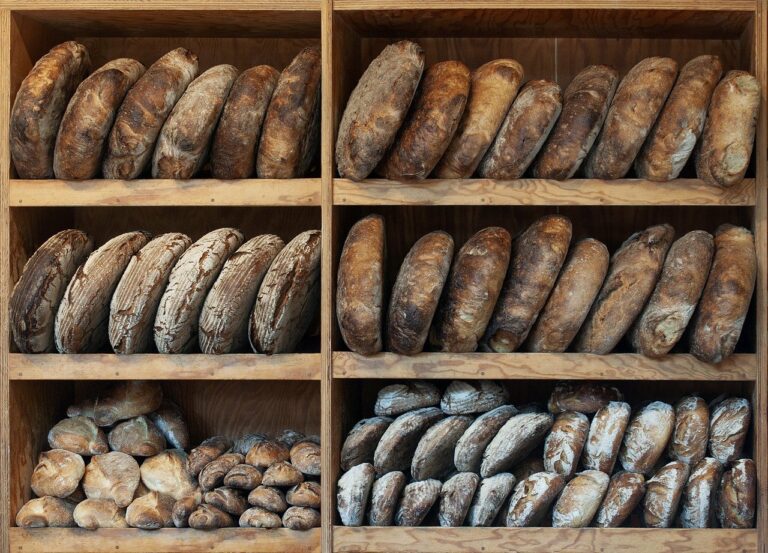The Role of Coffee in Business Meetings and Negotiations
betbhai9 registration, radheexch/admin, my 99 exch:Coffee plays a crucial role in business meetings and negotiations. It has become a staple beverage in corporate settings, often being served to guests, clients, and employees alike. The aroma of freshly brewed coffee can create a welcoming and comfortable atmosphere, which can help facilitate productive discussions and decision-making. In this article, we will explore the significance of coffee in business meetings and negotiations, and how it can impact the outcomes of these crucial interactions.
The Social Aspect of Coffee in Business
The act of offering someone a cup of coffee is a gesture of hospitality and goodwill. In business settings, this simple gesture can help break the ice and establish a rapport with clients, colleagues, or potential partners. Sharing a cup of coffee can create a relaxed and informal environment, making it easier for people to engage in meaningful conversations and negotiations.
Coffee also plays a significant role in networking. Many business professionals meet over a cup of coffee to discuss potential opportunities, partnerships, or collaborations. The caffeine boost from coffee can also help keep participants alert and focused during long meetings or negotiations, ensuring that they can engage effectively in the discussions at hand.
The Psychological Impact of Coffee in Business
Research has shown that the aroma of coffee can have a positive impact on cognitive functions, including alertness, concentration, and memory. The caffeine in coffee can also improve mental performance and decision-making, making it an ideal beverage for business meetings and negotiations where critical thinking is required.
Additionally, the act of serving coffee can create a sense of reciprocity and trust between parties. When someone offers you a cup of coffee, it signifies that they are willing to invest their time and resources in the interaction, which can help foster positive relationships and build rapport. This can be particularly beneficial in negotiations, where trust and goodwill play a critical role in reaching mutually beneficial agreements.
The Role of Coffee in Negotiations
Coffee can also be used strategically in negotiations to influence the outcomes of the discussion. For example, offering a cup of coffee to your counterpart can signal your willingness to engage in a constructive dialogue and work towards a mutually acceptable solution. It can also help set a positive tone for the negotiation by creating a relaxed and collaborative atmosphere.
Moreover, the act of taking a coffee break during a negotiation can provide an opportunity for both parties to regroup, reflect on the discussion so far, and come up with creative solutions to any sticking points. This pause can help diffuse tension, de-escalate conflict, and facilitate a more productive negotiation process.
In some cultures, the ritual of coffee drinking is deeply ingrained in the social fabric, with specific customs and traditions associated with the serving and consumption of coffee. Understanding these cultural nuances can be essential in international negotiations, where the use of coffee can either strengthen or undermine the negotiation process. By being aware of these cultural sensitivities, you can effectively use coffee as a tool to build trust and establish a fruitful relationship with your counterparts.
The Impact of Virtual Meetings on the Role of Coffee
With the rise of remote work and virtual meetings, the role of coffee in business interactions has evolved. While the physical act of sharing a cup of coffee may no longer be possible in virtual settings, many companies have started sending coffee gift boxes or vouchers to participants before important meetings as a way to recreate the social aspect of coffee in a digital environment.
Moreover, some virtual meeting platforms now offer built-in coffee break features, where participants can take a short break to grab a cup of coffee and recharge before resuming the discussion. These virtual coffee breaks can help replicate the informal and relaxed atmosphere of in-person meetings, fostering collaboration and engagement among participants.
Frequently Asked Questions
1. Should I offer coffee to my clients or partners during business meetings?
Offering coffee to clients or partners during business meetings is a common practice that can help create a positive and welcoming environment. However, it is essential to be mindful of any dietary restrictions or preferences that your guests may have. If you are unsure, it is always best to ask them beforehand.
2. How can I use coffee strategically in negotiations?
Using coffee strategically in negotiations involves understanding the social and psychological impact of coffee on the negotiation process. You can offer coffee to your counterpart as a gesture of goodwill, use coffee breaks to regroup and reflect on the discussion, or leverage the cultural significance of coffee to build trust and rapport with your counterparts.
3. What should I do if my counterpart declines my offer of coffee during a negotiation?
If your counterpart declines your offer of coffee during a negotiation, respect their decision and continue the discussion without insisting on them accepting the coffee. It is essential to be flexible and adapt to the preferences and comfort levels of your counterparts to ensure a productive and respectful negotiation process.
In conclusion, coffee plays a multifaceted role in business meetings and negotiations, from creating a welcoming atmosphere to enhancing cognitive functions and decision-making. By understanding the social, psychological, and cultural significance of coffee in business interactions, you can leverage this ubiquitous beverage to build trust, foster positive relationships, and facilitate successful negotiations. So, the next time you find yourself in a business meeting or negotiation, remember the power of coffee in shaping the outcomes of your discussions.







